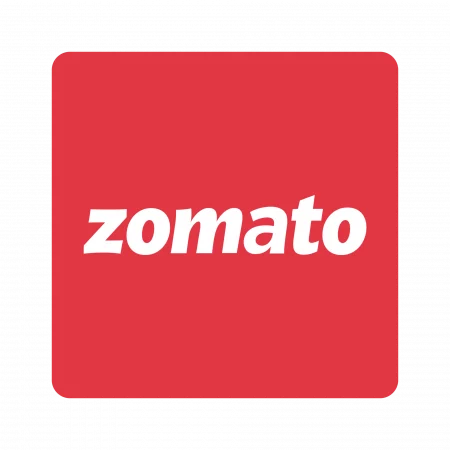Did you know that Zomato was “Foodiebay” initially? Yes, Deepinder Goyal and Pankaj Chaddah founded Foodiebay in 2008 and then rebranded it to Zomato on January 18, 2010. Wondering where Zomato came from; it just rhymes with tomato! It allows customers to browse menus, read reviews, and place food orders through its mobile application from partner restaurants.
Read to know more:
IIT Delhi alumni: Deepinder Goyal and Pankaj Chaddha
Both the co-founders had worked together at Bain & Co. in New Delhi before they ventured into entrepreneurship. They were both IIT Delhi graduates. Deepinder Goyal is the founder, MD, and CEO (chief executive officer) of Zomato, whereas Pankaj is the co-founder and COO (chief operating officer). Deepinder Goyal was also there in Shark Tank India season 2 as a shark.
However, Chaddha left the business after 10 years, in 2018.
He said, “After 10 years, I am moving on from Zomato to try out something new. I’ll continue to play an active role until the end of this month.”
The Growth of Zomato
After 9 months of FoodieBay’s launch, it became the largest restaurant directory in Delhi NCR and soon expanded to Mumbai and Kolkata. Cut to 2019, Zomato had grown into a major international player in the food tech industry; it now operates in 24 countries and over 10,000 cities. The user-friendly application was a major highlight in the growth, also the coupons!
Zomato’s Byproducts
Zomato Wings: launched to connect restaurant owners with potential investors.
Hyperpure: A vertical that revolutionized restaurant operations by providing fresh, high-quality ingredients.
The Zomato Pro: A membership program (previously known as Zomato Gold) offers users exclusive benefits like free deliveries, VIP access during rush hours, and discounts on dining and delivery services.
Zomaland: A carnival featuring interactive games, musicians, comedians, and top restaurants.
Some recent launches
Xtreme: launched in October 2023, is a parcel delivery app that allows retailers to send and receive small parcels.
Districts: launched in 2024, will focus on how consumers engage in going-out activities, showcasing its commitment to innovation and user engagement.
Zomato’s Revenue Model: How It Makes Money
The business’s revenue model is diverse, with several key sources of income:
- Advertising Revenue: the primary revenue source of the company is the advertising space it offers to businesses on its platform, reaching millions of potential customers.
- Commission-Based Model: It charges restaurants a commission for being listed on the platform and processing orders, making it a core part of its business model.
- Zomato Pro Membership: The membership program drives additional revenue by offering members exclusive privileges and services.
Zomato and Employee Stock Ownership Plans (ESOPs)
Zomato listed an IPO on July 23, 2021, with an issue price of Rs 76 per equity share. It has also implemented ESOPs as part of its compensation strategy very recently. In August 2023, it announced the grant of ESOPs worth Rs 2.52 crore to certain employees and employees of its subsidiaries. By November 2023, the company had distributed equity shares worth approximately 10.65 crore through various ESOP programs. In February 2024, the venture board approved the allotment of over 10.88 crore equity shares with a face value of Rs 1.
What is ESOP (employee stock ownership plan)?
It gives an employee the benefit of owning a part of the company they are working for.
The Gossips and Controversies: #RejectZomato
It was not easy for the founders to enjoy the growth and serve the country. They have faced several controversies and hate as well, including the #Logout campaign initiated by restaurants protesting profit margins on the platform. Cybersecurity threats, such as a significant cyberattack in 2017, highlighted the need for robust security measures. Moreover, customer service issues, like the #RejectZomato incident, highlighted the importance of addressing a wide range of challenges as the company continues to grow.
Amidst all these, Zomato stands profitable with a revenue of Rs 351 crore in FY 23-24.
Check out similar business startup stories here.






